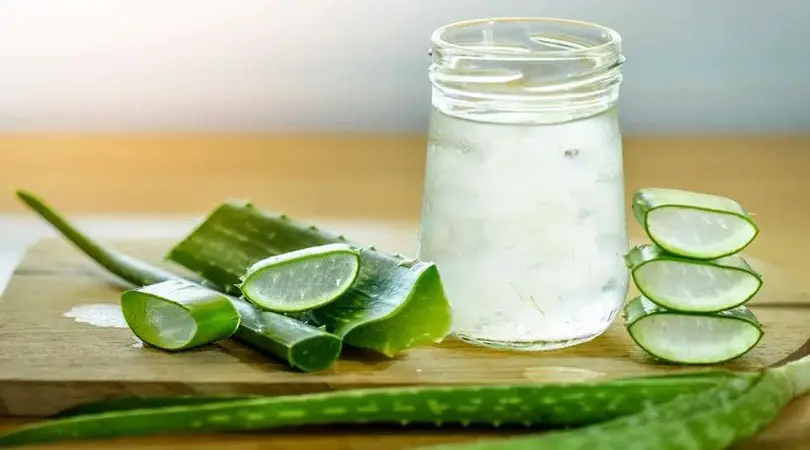Last Updated on January 6, 2025
Yes, you can eat tiramisu while pregnant, as long as it is made with pasteurized eggs and no alcohol. Tiramisu is a popular italian dessert that typically consists of layers of ladyfingers dipped in coffee, mascarpone cheese, eggs, and cocoa powder.
While raw or undercooked eggs can pose a risk of salmonella, using pasteurized eggs eliminates this concern. Additionally, tiramisu recipes that use alcohol, such as marsala wine, should be avoided during pregnancy. It is always important to consult with your healthcare provider and follow their recommendations regarding your diet during pregnancy.

Credit: www.mashed.com
The Safety Of Tiramisu During Pregnancy
Understanding The Concerns
Tiramisu is a popular italian dessert enjoyed by many, but if you’re pregnant, you may have some concerns about whether it is safe to consume during this special time. Let’s take a closer look at the safety of tiramisu during pregnancy and address any worries you may have.
Assessing The Risks Associated With Tiramisu
When it comes to assessing the risks associated with tiramisu during pregnancy, there are a few main factors to consider:
- Raw eggs: Traditional tiramisu recipes typically contain raw eggs in the form of zabaglione or egg-based mascarpone cream. Raw eggs can pose a risk of salmonella infection, which can have serious consequences for both you and your baby.
- Alcohol content: Tiramisu often includes a splash of alcohol, such as marsala wine or coffee liqueur. Alcohol consumption during pregnancy is generally discouraged due to the potential harm it can cause to the developing fetus.
- Caffeine: Tiramisu contains coffee or espresso, which means it also contains caffeine. While a small amount of caffeine is usually safe during pregnancy, excessive caffeine intake can increase the risk of complications.
Guidelines For Safe Tiramisu Consumption During Pregnancy
If you’re craving tiramisu and want to indulge safely while pregnant, here are some guidelines to follow:
- Opt for eggless versions: Look for recipes or store-bought options that do not include raw eggs. Many dessert shops and bakeries offer eggless versions of tiramisu that are just as delicious.
- Say no to alcohol: Choose alcohol-free varieties of tiramisu or ask for the alcohol to be omitted if ordering at a restaurant. Enjoy the flavors of the dessert without the potential risks associated with alcohol consumption.
- Moderate caffeine intake: Limit your caffeine intake while enjoying tiramisu. Opt for decaffeinated coffee or espresso, or choose versions of tiramisu with less coffee content. Be conscious of your total caffeine consumption from other sources as well.
- Choose trusted sources: If you’re making tiramisu at home, ensure you are using fresh, high-quality ingredients from trusted sources. This includes dairy products and coffee that have been properly stored and refrigerated.
Remember, it’s always best to consult with your healthcare provider for personalized advice regarding your diet during pregnancy. They can provide you with specific recommendations based on your individual health circumstances.
While it’s important to be mindful of the potential risks associated with traditional tiramisu, there are ways to enjoy this delectable dessert safely during pregnancy. By following these guidelines and making informed choices, you can satisfy your sweet tooth without compromising your health or the health of your baby.
Ingredients Of Tiramisu And Their Effects On Pregnancy
Analysis Of Tiramisu Components
Tiramisu is a popular italian dessert known for its rich flavors and creamy texture. However, when it comes to enjoying this delectable treat during pregnancy, it is important to consider the ingredients and their potential effects on both you and your baby.
Let’s delve into the key components of tiramisu and their impact on pregnancy.
The Impact Of Coffee And Alcohol In Tiramisu
- Coffee: Tiramisu typically contains coffee-soaked ladyfingers, which means it contains caffeine. While moderate caffeine consumption is generally considered safe during pregnancy, it is still recommended to limit your intake to avoid potential risks. High caffeine consumption has been linked to increased chances of miscarriage and low birth weight. It is advised to limit your caffeine intake to under 200 mg per day, which is equivalent to a small cup of coffee.
- Alcohol: Traditional tiramisu recipes often include the addition of alcohol, usually marsala wine or rum, to enhance the flavor. However, it is important to avoid consuming alcohol during pregnancy to prevent any potential harm to your developing baby. Alcohol can increase the risk of various birth defects and developmental issues. If you are craving tiramisu, consider opting for non-alcoholic versions or making it at home without alcohol.
The Role Of Raw Eggs In Tiramisu
- Raw eggs: Tiramisu traditionally contains raw eggs to create its luscious texture. However, consuming raw or undercooked eggs during pregnancy carries a risk of salmonella infection, which can be harmful to both you and your baby. To eliminate this potential risk, it is recommended to use pasteurized eggs or egg substitutes when preparing tiramisu.
- Pasteurization: Pasteurization is a process that kills bacteria, including salmonella, by heating the eggs to a certain temperature. Using pasteurized eggs ensures that any harmful bacteria present in the raw eggs are destroyed, making it safe for consumption during pregnancy. Be sure to check the labels or use homemade pasteurized eggs when making tiramisu.
Remember, it’s crucial to prioritize the well-being of you and your baby during pregnancy. While indulging in a small portion of tiramisu occasionally may not pose significant risks, it is important to be mindful of the ingredients and their potential effects.
If you have any concerns or doubts, it’s always wise to consult with your healthcare provider for personalized advice.
Alternative Recipes For Pregnancy-Safe Tiramisu
Craving a delicious slice of tiramisu during your pregnancy? While the classic recipe contains ingredients like raw eggs and alcohol, which may not be suitable for expecting mothers, there are alternative ways to enjoy this delectable dessert without any worries.
In this section, we explore some eggless tiramisu recipes, non-alcoholic adaptations, and healthy ingredient substitutions that make tiramisu pregnancy-safe.
Exploring Eggless Tiramisu Recipes
If you’re avoiding raw eggs during your pregnancy, fret not! Eggless tiramisu recipes are an excellent alternative. Here are some key points to consider:
- Opt for egg substitutes: Replace fresh eggs with egg substitutes like silken tofu or mashed bananas to achieve that creamy texture without any health concerns.
- Whipped cream alternatives: Replace traditional whipped cream with coconut cream or cashew cream for a dairy-free and pregnancy-safe option.
- Soaking ladyfingers: Dip ladyfingers in coffee or fruit juice instead of the traditional coffee and marsala wine mixture for a flavorful twist.
Non-Alcoholic Tiramisu Adaptations
Alcohol is a big no-no during pregnancy, but that doesn’t mean you have to miss out on the flavors of tiramisu. Consider the following options:
- Alcohol-free coffee alternatives: Use decaffeinated or regular coffee without alcohol for soaking the ladyfingers.
- Substituting liqueurs: Replace the liqueur component with non-alcoholic alternatives like flavored syrups, extracts, or coffee extracts for a delicious twist without the risks associated with alcohol.
Healthy Ingredient Substitutions For Pregnancy-Safe Tiramisu
Making health-conscious choices during pregnancy is essential. Here are some healthy ingredient substitutions to create a pregnancy-friendly tiramisu:
- Whole grain ladyfingers: Use whole grain or whole wheat ladyfingers for a fiber-packed alternative.
- Low-fat and low-sugar options: Choose low-fat mascarpone cheese or greek yogurt as a substitute for the traditional high-fat options. Opt for natural sweeteners like honey or maple syrup instead of refined sugar.
- Boosting nutritional value: Add some extra nutrition to your tiramisu by incorporating fruits like berries, sliced bananas, or even grated dark chocolate for an antioxidant-rich treat.
By exploring these alternative recipes and adapting traditional tiramisu to suit your pregnancy needs, you can indulge in this delightful dessert without any worries. Enjoy every creamy, coffee-infused bite while keeping your health and the well-being of your growing baby in mind.
Frequently Asked Questions For Can You Eat Tiramisu While Pregnant?
Can You Eat Tiramisu While Pregnant?
Yes, you can eat tiramisu while pregnant, but you must make sure it is made with pasteurized eggs to avoid the risk of salmonella.
Is It Safe To Consume Raw Eggs In Tiramisu During Pregnancy?
It’s not safe to consume raw eggs in tiramisu during pregnancy due to the risk of salmonella infection. Choose a recipe made with pasteurized eggs instead.
What Precautions Should I Take While Eating Tiramisu During Pregnancy?
When eating tiramisu during pregnancy, ensure it is made with pasteurized eggs, stored properly, and consumed in moderation for a balanced diet.
Can The Caffeine Content In Tiramisu Harm My Baby During Pregnancy?
The caffeine content in tiramisu is low, but it’s advisable to limit caffeine intake during pregnancy. Enjoy tiramisu in moderation to minimize any potential risks.
Conclusion
While pregnant, it’s important to be mindful of what you eat. Tiramisu is a delicious italian dessert that often contains raw eggs and alcohol, which can pose potential risks during pregnancy. Raw eggs may contain harmful bacteria like salmonella, which can lead to food poisoning.
Meanwhile, alcohol consumption during pregnancy is strictly discouraged due to the risk of fetal alcohol syndrome. It’s advisable to consult with your healthcare provider before including tiramisu in your pregnancy diet. However, you can still enjoy a pregnancy-friendly version of this dessert by opting for a recipe that uses pasteurized eggs or egg substitute, skips the alcohol, and ensures proper hygiene in its preparation.
Ultimately, it’s essential to prioritize the health and well-being of both you and your baby during this special time.











